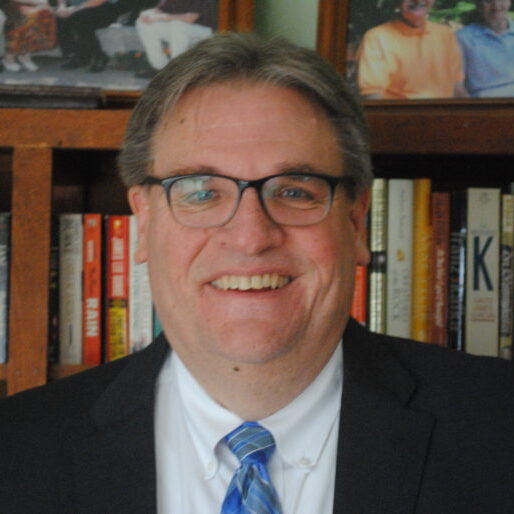Home » Doug Bratt » Authors » Page 43

Rev. Douglas Bratt is a Minister of the Word in the Christian Reformed Church in North America. After serving Christian Reformed churches in Iowa, Michigan and Maryland, he retired in July, 2024. He enjoys spending time with his grandchildren, reading good literature, and watching televised sports in his free time.
Doug began writing sermon commentaries for the CEP website in 2006 and started writing weekly in 2012.
Genesis 45:1-15
Commentary
Proper 15A
God always makes the dreams God gives God’s adopted sons and daughters come true. Sometimes, however, it takes so long for that to happen that it seems that the dream, if not the dreamers, dies. As Genesis 45 opens, God has partially fulfilled Joseph’s dreams by putting him in charge of both Egypt and his…
Genesis 37:1-4, 12-28
Commentary
Proper 14A
Almost all people walk the wide roads that are dreams for their children, work, future, and themselves. And while some of those dreams don’t come true, as long as they don’t disrupt current arrangements, they’re pretty harmless. However, where dreams about the future conflict with current realities, they can be very disruptive. In fact, they…
Genesis 32:22-31
Commentary
Proper 13A
God graciously meets and accepts God’s adopted sons and daughters wherever and whoever we are. But God never just leaves us where we are. That’s no less true of God’s 21st century adopted daughters and sons than it is of Jacob. The first time God meets Jacob, he’s fleeing both his homeland and his twin’s…
Genesis 29:15-28
Commentary
Proper 12A
Genesis 29 features one of the oddest, often slimiest groups of characters ever assembled outside a North American reality television show studio. Thankfully, then, it’s not oily enough to escape the grasp of God’s strong, gracious hand. In fact, God somehow graciously transforms all of their cheating and resentment into a vehicle for God’s amazing…
Genesis 28:10-19a
Commentary
Proper 11A
While Christians profess that God is graciously present to everything everywhere, we also have to admit that it’s sometimes hard to recognize that presence. Especially when God’s adopted sons and daughters are busy running from some kind of pursuer. Genesis 28’s Jacob is at least figuratively on the dead run. He has, after all, swindled…
Genesis 25:19-34
Commentary
Proper 10A
Sometimes it’s precisely when we assume nothing can go wrong that things, in fact, do go quite wrong. Thankfully, then, God is graciously present in and to such things, always providentially bending them toward God’s good and loving purposes. It certainly seems like nothing can go wrong as the Old Testament text the Lectionary appoints…
Genesis 24:34-38, 42-49, 58-67
Commentary
Proper 9A
Sometimes God only seems to keep part of God’s promises. To see their complete fulfillment, we may need to squint pretty hard. Earlier in Genesis, God promised Abraham the land of Canaan, many descendants and a worldwide blessing through him. In their old age, Abraham and Sarah saw God initially fulfill that promise through Isaac’s…
Genesis 22:1-14
Commentary
Proper 8A
I have colleagues whom I respect who tell me they’ll never preach this Old Testament text the Lectionary appoints for this Sunday. When I asked a very wise friend for advice on how to preach this text, he told me to “Skip it.” After all, while our text’s Abraham asks no questions, we have plenty…
Genesis 21:8-21
Commentary
Proper 7A
If only the narrator of the Old Testament text that the Lectionary appoints for this Sunday had just quit at verse 8. After Isaac is weaned, Abraham throws a big soiree. Period. It would have made for a happy ending that would send everyone home happy. But that’s not the way Genesis 21 ends. Pain…
Genesis 18:1-15, (21:1-7)
Commentary
Proper 6A
“The trouble with a lot of religion,” my colleague John Buchanan once said in a sermon on Genesis 18, “is that it is so predictable; there is no room for surprise in it.” He then goes on to quote the theologian Sam Keene as saying that surprise – and wonder – is at the heart…

About Doug Bratt